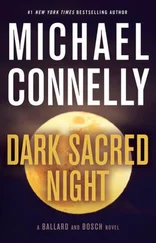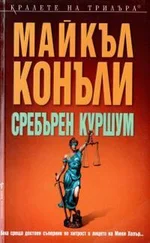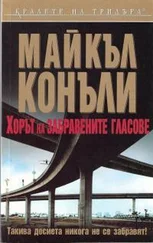He led me through the entryway to a living room decorated in white and aqua furnishings. He gestured toward the couch — that was for me — while he sat on a matching stuffed chair. He put the dog down next to him on the chair. He was wearing white pants and a sea-foam-green golf shirt. He blended in perfectly with the house’s design and decor, and I didn’t think that was by happenstance.
“Do you live here alone?” I asked.
“No,” Hwang said.
He offered no further details.
“Well, as I said at the door, I’m doing a story about GT23 and I came across your lawsuit. It’s still pending, correct?”
“It’s pending — we don’t have a trial date yet,” he said. “But I can’t talk to you because the case is still active.”
“Well, your case is not really what I’m writing about. If I steer clear of the lawsuit, can I ask you a few questions?”
“No, impossible. My lawyer said I could not speak at all when the other journalist called. I wanted to, but he wouldn’t let me.”
I was suddenly gripped by a reporter’s greatest fear — being scooped. Another journalist might be following the same trail as me.
“Who was the other journalist?” I asked.
“I don’t remember,” Hwang said. “My lawyer told him no.”
“Well, was it recent? Or are you talking about when you filed the lawsuit?”
“Yes, when I filed.”
I felt a wave of relief. The lawsuit had been filed almost a year ago. It was probably a routine call from a reporter — probably from the L.A. Times — who had noticed the lawsuit on the courthouse docket and called for a comment.
“What if we talk off the record?” I said. “I don’t quote you or use your name.”
“I don’t know,” Hwang said. “It still sounds risky. I don’t even know you and you want me to trust you.”
This was a dance I had engaged in many times before. People often said they couldn’t or didn’t want to talk. The trick was to leverage their anger and give them a safe outlet for it. Then they would talk.
“All I can say is that I would protect you from being identified,” I said. “My own credibility is at stake. I burn a source and no source will ever trust me. I went to jail once for sixty-three days because I wouldn’t give up the name of a source.”
Hwang looked horrified. Mentioning that experience often worked with people on the fence about talking to me.
“What happened?” Hwang asked.
“The judge finally let me go,” I said. “He knew I wasn’t going to give up the name.”
All of that was true, but I left out the part about my source — Rachel Walling — coming forward and revealing herself. After that there was no point in continuing the contempt order and the judge released me.
“The thing is, if I talk they’ll know it came from me,” Hwang said. “They’ll read the story and say, Who else could it come from? ”
“Your information would be for background only. I won’t record. I don’t even have to take notes. I’m just trying to understand how all of this works.”
Hwang paused and then made a decision.
“Ask your questions and if I don’t like them, I won’t answer.”
“Fair enough.”
I had not really thought about how I would explain myself should Hwang agree to talk to me — on or off the record. Now it was time. Like a good police detective, I didn’t want to give the subject of my interview all my information. I didn’t know him and didn’t know who he might pass it on to. He was worried about trusting me but I also had to worry about trusting him.
“Let me start by explaining who I am and what I’m doing,” I began. “I work for a news site called FairWarning. It’s consumer-protection reporting. You know, watching out for the little guy. And I’ve been assigned to look at the security of the personal information and biological material in the genetic-analytics field.”
Hwang immediately scoffed.
“What security?” he said.
I wanted to write the line down because I instinctively saw it as possibly the first quote in a story. It was provocative and would pull the reader in. But I couldn’t. I had made a deal with Hwang.
“It sounds like you were not impressed by the security at GT23,” I said.
The question was deliberately open-ended. He could run with it if he wished.
“Not the lab,” Hwang said. “I ran a tight lab. We adhered to all protocols and I will prove that in court. It was what happened afterward.”
“Afterward?” I prompted.
“The places the data went. The company wanted the money. They didn’t care where it went as long as they were getting paid.”
“When you say ‘They,’ you’re talking about GT23?”
“Yes, of course. They went public and needed more revenue to support the stock. So they were wide open for business. They lowered the bar.”
“Give me an example.”
“Too many to list. We were shipping DNA all over the world. Thousands of samples. The company needed the money and no one was turned away as long as it was a lab registered with the FDA or the equivalent in other countries.”
“So then they had to be legit. It wasn’t like somebody drives up and says, I need DNA. I’m not understanding your concern.”
“It’s the Wild West right now. There are so many directions to go with genetic research. It’s really in its infancy. And we — meaning the company — don’t control what happens with the bio and how it’s used once it goes out the door. That’s the FDA’s problem, not ours — that was the attitude. And let me tell you, the FDA didn’t do jack.”
“Okay, I get that and I’m not saying that’s a good thing, but wasn’t there the safety that it was all anonymous? I mean, these researchers were given the DNA but not the identities of the participants, right?”
“Of course, but that’s not the point. You’re thinking in the present. What about the future? This science is very young. We haven’t even had the whole genome for twenty years. New things are discovered about it every day. Will what is anonymous now stay that way in twenty years? In ten years? Or will usernames and passwords not matter? What if your DNA is your identifier and you’ve already given it away?”
Hwang raised his hand and pointed a finger at the ceiling.
“Even the military,” he said. “Did you know that this year the Pentagon told all members of the military not to do DNA kits because of the security issues they pose?”
I had not seen that report but I did grasp Hwang’s point.
“Were you warning GT23 about this?” I asked.
“Of course I was,” Hwang said. “Every day. I was the only one.”
“I read the lawsuit.”
“I can’t talk about that. Even off the record. My lawyer—”
“I’m not asking you to. But the lawsuit, it says the employee who filed the complaint against you — David Shanley — set you up to get your job and that it was not investigated by the company.”
“It was all lies.”
“I know. I get that. But the motive. You don’t think it could have been to shut you up about this — about the lack of controls or concern over where the DNA was going?”
“All I know is that Shanley got my job. He lies about me and gets my fucking job.”
“That could have been his reward for getting you out of the company. They were afraid you would be a whistleblower.”
“My lawyer has subpoenaed company documents. Emails. If it’s there, we’ll find it.”
“Let’s go back to what you were saying about the DNA being sold by the company. Can you remember any names of labs or biotechs that were sold samples?”
“There were too many to remember. We put bio-packs together almost every single day.”
Читать дальше
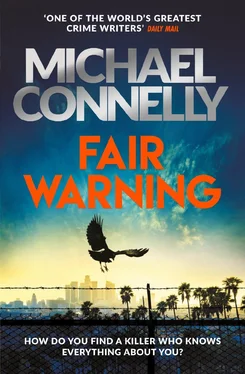


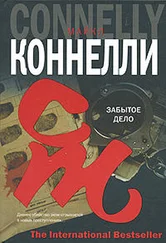
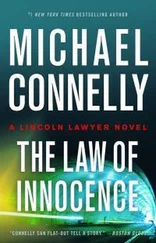
![Майкл Коннелли - Christmas Even [Short story]](/books/390532/majkl-konnelli-christmas-even-short-story-thumb.webp)
![Майкл Коннелли - The Night Fire [Harry Bosch - 22]](/books/405630/majkl-konnelli-the-night-fire-harry-bosch-22-thumb.webp)
